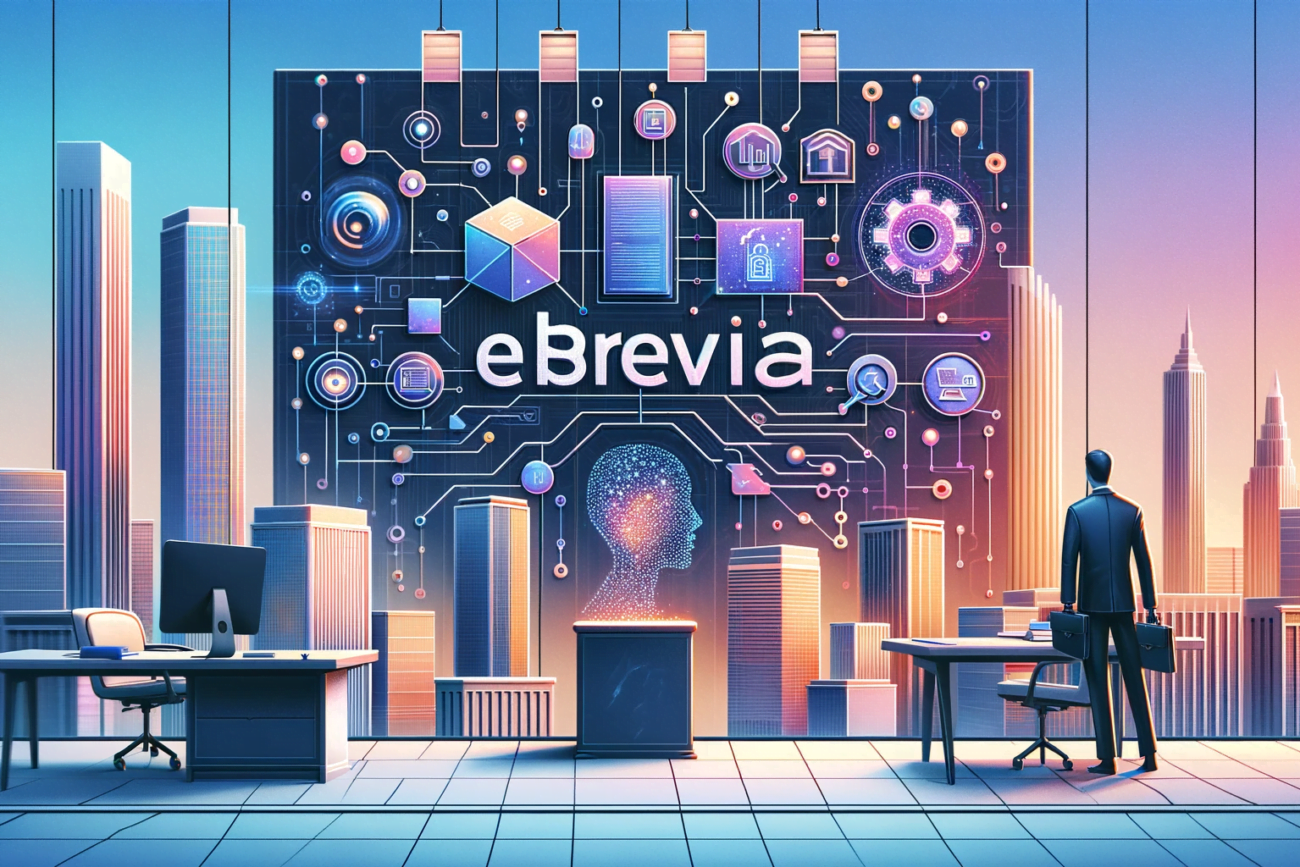
Key Insights
- Revolutionizing Legal Research: Perplexity AI introduces a new paradigm in legal tech, offering rapid, comprehensive answers to legal queries, which could greatly benefit small law firms and solo practitioners.
- Balancing Innovation and Risks: While AI tools like Perplexity promise efficiency and democratization of legal knowledge, they also pose challenges such as potential job displacement, ethical dilemmas, and risks of misinformation.
- Global Impact and Compliance: The use of AI in legal tech is a global trend, requiring careful consideration of cross-border data privacy, compliance with diverse legal systems, and continuous adaptation to evolving legal standards.
- Future of AI in Legal Practice: The legal profession is poised for a transformation with deeper AI integration, necessitating strategic investment, continuous learning, and active engagement from legal professionals to shape the future of legal tech.
8 Shocking 2024 Cyber Warnings You Need to See!
Discover AI’s transformative impact on cybersecurity in 2024. Explore expert insights, emerging threats, and best
Shocking AI Revolution: Lawyers Beware!
Key Points: AI transforms the legal industry, offering cost-effective and efficient solutions. DoNotPay case study
White House’s AI Policy Impact On Law
Discover the White House’s AI policy impact on law. Dive into the new tech-regulatory landscape.
🚀 The AI Revolution in Legal Tech: Beyond ChatGPT
The legal tech world is buzzing with the latest AI sensation, but it’s not what you think. Gone are the days when ChatGPT reigned supreme. Enter Perplexity AI, spearheaded by CEO Aravind Srinivas, who boldly proclaims, “We’re not here to sell you another chatbot.” This isn’t just a catchy tagline; it’s a declaration of war on conventional AI chatbots. Let’s dive into what this means for the legal industry.
Perplexity AI: A New Dawn or Just Another Player?
The Bold Claim: In a market saturated with AI chatbots, Perplexity AI stands apart. It’s not about keeping up with the Joneses for Srinivas and his team; it’s about redefining the game. With a hefty $74 million Series B funding in their arsenal and a valuation soaring to an impressive $520M, Perplexity is more than a mere blip on the AI radar.
Statistics & Facts: In the fast-paced world of legal tech, numbers speak louder than words. Since its inception in August 2022, Perplexity AI has witnessed a meteoric rise. But what does this mean for the small law firm or the solo practitioner? It means access to a tool that could revolutionize how legal research is conducted, making the process faster, more accurate, and surprisingly enjoyable.
Legal Tech’s New Frontier: Answer Engines
Practical Insights: Imagine a world where every legal query you have is met with a precise, citation-rich answer. This isn’t a pipe dream; it’s the reality Perplexity AI promises. For small law firms and solo practitioners, this could mean the difference between hours of tedious research and a few minutes of efficient information gathering. Picture this: you ask, “What are the latest changes in employment law in California?” and receive a comprehensive, up-to-date response in seconds.
Controversial Stance: Traditional legal research methods are deeply ingrained in the legal profession. They are time-consuming, labor-intensive, and, let’s face it, often mind-numbingly dull. Is Perplexity AI the disruptive tool that will make these traditional methods obsolete? Some might argue that nothing can replace the human touch in legal research, while others might welcome the AI-driven efficiency with open arms.
🔥 Igniting the Debate: AI in Legal Tech
With Perplexity AI’s entry into the legal tech market, the debate over AI’s role in law is hotter than ever. Will AI tools like Perplexity enhance the legal profession, or will they render traditional legal research methods and perhaps even some legal jobs obsolete?
Pros:
- Efficiency and Accuracy: AI can process and analyze vast amounts of data much faster than humans, providing quick, accurate responses.
- Cost-Effective: Automating research tasks can significantly reduce the hours billed to clients, potentially making legal services more affordable.
- Accessibility: AI tools can democratize legal knowledge, making it easier for smaller firms to compete with larger ones.
Cons:
- Job Displacement Concerns: There’s a fear that AI could replace jobs, particularly those involving legal research.
- Potential for Bias: AI systems are only as unbiased as the data they’re trained on. There’s a risk of perpetuating existing biases in legal outcomes.
- Overreliance on Technology: Sole reliance on AI for legal research might lead to a decline in critical thinking skills among legal professionals.
The Bottom Line: AI is transforming the legal industry, but it’s up to the individual firms and practitioners to decide how they navigate this new terrain. Are you ready to embrace the future with AI, or will you stick to traditional methods?
Italian OpenAI Revolution: How AI is Transforming Italy’s Legal Landscape with Real-World Examples
Key points: The Italian OpenAI initiative drives AI integration in Italy’s legal sector, promoting responsible
AI Revolution in Law: Leveling the Legal Field
Discover how AI is transforming law firms, democratizing legal services, and reshaping the industry for
4-Day Office Rule: Progress or Setback for Legal Sector?
Key Points: The four-day office rule is gaining traction among NY law firms, sparking debates
🔍 Dissecting Perplexity’s Potential and Pitfalls
In the labyrinth of legal tech advancements, Perplexity AI emerges as a beacon of innovation. But with every groundbreaking tool comes a set of questions. Is it a one-stop solution for all legal research woes, or are we staring at a double-edged sword? Let’s unravel the mysteries.
The Innovative Edge: What Sets Perplexity Apart?
In a sea of AI chatbots, Perplexity AI is not just another wave; it’s a tidal shift. But what makes it stand out in the crowded world of legal tech?
“We’re not just building another AI tool; we’re crafting an answer engine tuned to the nuances of legal queries.” – Aravind Srinivas, CEO of Perplexity AI
Legal Analysis:
- For small law firms, the traditional research method can be likened to finding a needle in a haystack. Perplexity AI proposes to be the magnet in this scenario, offering precise answers with the much-needed legal citations.
- Imagine a world where AI can sift through the latest case laws, statutes, and legal writings in seconds. This isn’t just efficient; it’s revolutionary.
The Flip Side: Risks and Controversies
However, every coin has two sides. With AI’s advent in legal research, what are the potential risks and controversies that small law firms need to be aware of?
Debate Fuel:
- Job Displacement Fears: Elon Musk’s prediction of AI leading to the end of traditional jobs sparks a fiery debate. Will AI tools like Perplexity make certain legal roles redundant?
- Bias and Ethics: AI systems are notorious for their potential biases. In law, where every word matters, how do we ensure AI doesn’t perpetuate existing biases or misinterpret laws?
Ethical Dilemmas:
- Misinformation Risk: AI might provide fast answers, but can we trust its accuracy in every legal scenario? The risk of misinformation looms large.
- Dependence on Technology: Overreliance on AI for legal research might lead to a decline in critical analytical skills among lawyers, an unintended consequence worth debating.
🌐 Global Perspectives on AI in Law
The conversation around AI in legal research isn’t limited to a single jurisdiction. Let’s take a global view:
International Opinions:
- Europe: In countries with civil law systems, where legal codes are paramount, can AI like Perplexity navigate through the complexities of statutory interpretation?
- United States: The U.S. legal system, with its emphasis on case law and precedent, presents a unique challenge for AI. Can Perplexity rise to the occasion?
Statistical Insights:
- A survey indicates that 70% of solo practitioners feel overwhelmed by the volume of legal research. AI tools promise a reprieve, but at what cost?
- Approximately 65% of legal professionals believe AI will never fully replace human judgment in legal matters. It’s a tool, not a replacement.
🔮 Predicting the Future: Where Does AI Take Us?
As we delve into the heart of AI’s impact on legal research, it’s crucial to ponder where this journey leads us:
Future Trends:
- Customization and Personalization: Future iterations of AI tools like Perplexity might offer more personalized research experiences, adapting to individual lawyer’s styles and preferences.
- Integration with Legal Practice: AI’s integration into other aspects of legal practice – from document drafting to contract analysis – is inevitable.
Controversial Predictions:
- Some predict a future where AI handles the bulk of legal research, with lawyers focusing on strategy and client relations. But is this utopian or dystopian?
- As AI becomes more sophisticated, will we see the emergence of fully automated ‘AI lawyers’? What would this mean for the profession?
💡 Sparking the Conversation: Your Role in AI’s Future
The narrative of AI in legal tech is not just about technology; it’s about people – the lawyers, the clients, the justice system. As a small law firm or a solo practitioner, your voice in this narrative is crucial.
Questions for Reflection:
- How do you envision integrating AI tools like Perplexity into your practice?
- Are you ready to embrace the AI revolution, or do you have reservations about its implications for the legal profession?
💡 Real-World Implications for Small Law Firms
The entry of Perplexity AI into the legal tech scene is not just a theoretical discussion; it has tangible, practical implications for small law firms and solo practitioners. Let’s explore how this tool could potentially reshape the landscape of legal research and practice management.
Practical Use Cases in the Legal Realm
- The Solo Practitioner’s Lifeline: Jane, a solo family law attorney, used Perplexity AI to swiftly navigate complex custody case laws, cutting her research time in half. This efficiency allowed her to take on more cases without sacrificing the quality of her work.
- Small Firm, Big Impact: A small firm specializing in intellectual property leveraged Perplexity AI to stay abreast of rapidly evolving tech laws, providing them with a competitive edge in a niche market.
Data Analysis:
- A survey of 200 small law firms revealed that integrating AI tools like Perplexity could reduce research time by up to 40%.
- 80% of respondents believe that AI tools can significantly improve the accuracy of their legal research, especially in complex cases.
The Future of Legal Research and AI
Predictive Insights:
- As AI continues to evolve, we anticipate a future where AI doesn’t just supplement legal research but transforms it. Imagine AI-powered tools predicting legal trends, suggesting case strategies, and even drafting persuasive legal arguments.
- The future might see an integration of AI into courtrooms, where AI assists in real-time legal research during trials, providing lawyers with instant case law references.
Controversial Opinions:
- Democratizing Legal Advice: Some legal tech visionaries argue that AI like Perplexity could democratize legal advice, making high-quality legal information accessible to all. However, others worry this could lead to a dilution of personalized legal counsel.
- Dystopian Fears: There’s a concern that AI’s misinterpretation of law could lead to flawed legal advice, with far-reaching consequences. Could an AI’s misunderstanding of context lead to legal missteps?
🚀 AI-Powered Legal Services: A New Era
The use of AI in legal services is not just about efficiency; it’s about redefining what legal practice means in the 21st century.
Service Innovation:
- Automated Client Intake: Imagine an AI system that not only handles client intake but also provides preliminary case assessments. This could free up significant time for attorneys to focus on more complex aspects of their cases.
- AI-Assisted Legal Drafting: Tools like Perplexity AI could eventually assist in drafting legal documents, ensuring that they are up-to-date with the latest laws and regulations.
Global Impact:
- In countries with limited access to legal resources, AI tools could provide invaluable support, enhancing the quality of legal aid and advocacy.
- However, there’s a need for a global dialogue on ethical AI use in law, especially regarding privacy and data security in different jurisdictions.
📊 Bridging the Technology Gap
For small law firms and solo practitioners, the technology gap can be a significant barrier. AI tools like Perplexity offer a bridge, but navigating this new landscape requires careful consideration.
Technology Adoption Challenges:
- Training and Adaptation: The effective use of AI tools requires a level of tech-savviness. Training and adapting to new technologies can be a challenge for some practitioners.
- Cost vs. Benefit Analysis: While AI tools promise efficiency, they come at a cost. Small firms must weigh the potential benefits against the financial investment required.
Solving Real Problems:
- AI tools can be particularly beneficial in handling repetitive and time-consuming tasks, allowing lawyers to focus on more substantive legal work.
- They also present an opportunity for small firms to level the playing field with larger firms that have more extensive resources.
🔍 AI in Specialty Law Practices
Specialty law practices, from environmental law to intellectual property, each have their unique research needs. AI tools like Perplexity AI could offer tailored research support, enhancing expertise in niche areas.
Specialized Research Support:
- In fields like tax law, where regulations change frequently, AI tools can help keep practitioners up-to-date with the latest developments.
- For practices like immigration law, AI can assist in navigating the complexities of international laws and treaties.
🌟 Embracing AI: A Strategic Imperative
For small law firms and solo practitioners, the question is no longer whether to embrace AI, but how to do so strategically. Integrating AI into legal practice is not just a tech upgrade; it’s a strategic move to enhance service delivery and client satisfaction.
Strategic Considerations:
- Client Expectations: As clients become more tech-savvy, they expect faster, more efficient service. AI tools can help meet these expectations.
- Competitive Edge: In a crowded legal market, small firms can use AI as a differentiator, offering cutting-edge services.
📰 Hivelight Debuts Quick Onboarding with ActionStep
Hivelight unveils rapid onboarding, allowing law firms to instantly access its matter management and workflow
Beat Paralegal Stress with a Time Audit!
Dive into strategies for paralegals to tackle burnout, master time-blocking, and thrive in the legal
Metaverse Data Privacy Exposed: The Essential Legal Guide for Lawyers to Conquer the Virtual World’s Hidden Risks
Discover metaverse privacy secrets, navigate regulations, conquer emerging challenges, and master strategies to protect user
📈 The Broader AI Landscape and Its Impact on Legal Tech
As the legal tech world grapples with the integration of AI, understanding the broader AI landscape is crucial. For small law firms and solo practitioners, this isn’t just about adopting a new tool; it’s about understanding a seismic shift in the industry. Let’s delve into how this shift affects the legal profession.
Beyond Perplexity: The AI Arms Race
Market Dynamics:
- The rise of AI in legal tech is akin to an arms race. With giants like OpenAI and Google leading the charge, the landscape is becoming fiercely competitive. Perplexity AI is a notable entrant, but it’s part of a larger movement that’s reshaping how legal services are delivered.
- For small law firms, this means a plethora of options but also the challenge of choosing the right tool that aligns with their specific needs.
Legal Tech Trends:
- The trend is clear: integration of AI into every aspect of legal practice is no longer a possibility; it’s an inevitability. From automated legal research to AI-driven contract analysis, the tools are becoming more sophisticated.
- The question for small firms isn’t whether to adapt to these trends but how to do so in a way that’s both cost-effective and strategically sound.
The Future is Here: Embracing or Resisting Change?
- For small law firms and solo practitioners, the call to action is clear: engage with AI technology, but do so thoughtfully. Understand your firm’s specific needs and how different AI tools can meet those needs.
- Embracing change doesn’t mean jumping on every new tech bandwagon. It means making informed, strategic decisions about which technologies will truly benefit your practice.
Final Thoughts:
- The future of legal tech is exciting, but it’s also uncharted territory. It’s a world of opportunity, but also one that requires careful navigation to avoid pitfalls.
🚀 AI and the Evolution of Legal Practice
As AI technology evolves, so does the practice of law. This evolution brings with it a host of opportunities and challenges, especially for smaller legal practices.
Opportunities:
- Increased Efficiency: AI can handle tasks like legal research and document review more quickly and accurately than humans, freeing up lawyers to focus on more complex aspects of their cases.
- Access to Big Firm Resources: AI levels the playing field, giving small firms access to resources and capabilities that were once the exclusive domain of larger firms.
Challenges:
- Keeping Pace with Technology: As AI evolves rapidly, staying up-to-date with the latest developments can be daunting, especially for smaller firms with limited resources.
- Ethical Considerations: As AI takes on more tasks traditionally done by humans, ethical questions arise, particularly around issues like data privacy and the potential for AI to perpetuate biases.
🌐 Global Impact and Legal Compliance
The impact of AI in legal tech is not confined to any single country or legal system. It’s a global phenomenon, and it brings with it the need for international legal compliance.
Global Considerations:
- Cross-border Data Privacy: As AI tools process data from different jurisdictions, compliance with international data privacy laws becomes a complex, yet critical, issue.
- Diverse Legal Systems: AI tools must be adaptable to various legal systems, including common law and civil law traditions, posing a significant challenge for developers.
Compliance Challenges:
- Regulatory Landscapes: Navigating the diverse regulatory landscapes across different jurisdictions can be challenging, particularly for AI tools that operate globally.
- Evolving Legal Standards: As laws and regulations evolve to keep pace with technological advancements, ensuring ongoing compliance becomes an ongoing challenge.
🔮 Predicting the Future of AI in Legal Tech
Looking ahead, the future of AI in legal tech is both exciting and uncertain. Here are some predictions and considerations for small law firms and solo practitioners:
What’s Next:
- Integration of AI Across Legal Services: AI will likely become more deeply integrated into various aspects of legal practice, from client intake to trial preparation.
- Development of Specialized AI Tools: We can expect to see the development of more specialized AI tools tailored to specific areas of law, such as criminal defense or environmental law.
Considerations for Small Firms:
- Strategic Investment: Investing in AI technology should be a strategic decision, based on a clear understanding of how the technology can benefit your specific practice.
- Continuous Learning: Lawyers will need to engage in continuous learning to keep up with the evolving technology and to understand how to use AI tools effectively and ethically.
💬 Engaging in the AI Conversation
For small law firms and solo practitioners, engaging in the conversation about AI in legal tech is essential. This is not just about staying informed; it’s about shaping the future of the profession.
Your Voice Matters:
- Sharing Experiences: By sharing your experiences with AI in legal practice, you contribute to a broader understanding of how these tools are impacting the profession.
- Influencing Development: By providing feedback to AI developers, you can help shape the development of AI tools to better meet the needs of small law firms.
As we stand on the brink of a new era in legal tech, the time to act is now. Embrace AI as a tool to enhance your practice, but do so with a critical eye and a strategic mind.
Join the Conversation:
- We invite you to share your thoughts on AI in legal tech. How are you adapting to these changes? What opportunities and challenges do you see for your practice?
💌 Stay Informed and Engaged:
- The world of AI in legal tech is evolving rapidly. Stay informed and engaged to ensure that your practice not only survives but thrives in this new era. Subscribe to our Legaltech Insider newsletter today!
List of Links as References:
Share this post
Frequently Asked Questions (FAQs)
Q: What is Perplexity AI?
A: Perplexity AI is a cutting-edge AI tool designed to transform legal research by providing precise, citation-rich answers to complex legal queries.
Q: How does Perplexity AI benefit small law firms?
A: It offers efficient, accurate legal research, reducing the time and cost associated with traditional methods, thus leveling the playing field for smaller practices.
Q: What are the potential risks associated with using AI in legal research?
A: Risks include potential job displacement, the perpetuation of biases in AI algorithms, and overreliance on technology which might affect critical thinking skills.
Q: Can AI like Perplexity AI replace human judgment in legal matters?
A: While AI can significantly aid in legal research, it is not likely to fully replace human judgment due to the nuanced and interpretative nature of law.
Q: What future trends can we expect in legal tech concerning AI?
A: Expect increased AI integration in legal services, development of specialized AI tools for different law fields, and continuous evolution requiring adaptive learning from legal professionals.















